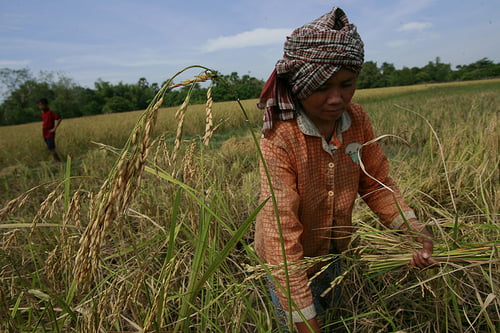

Environment
Kellogg’s and Mars among poor performers in Oxfam ethics scorecard
Some of the world’s largest food and beverage companies fail to meet ethical and environmental standards in developing countries, a report by Oxfam has revealed.
The Oxfam campaign aims to tackle global poverty and has analysed the social policies of the 10 largest food and beverage companies in its Behind the Brands report.
Each of them has been given a score out of 70, which took into account their use of land and water, efforts to meet climate goals, transparency in communication and working conditions in their supply chain.
These themes were assessed within four categories: awareness, knowledge, commitments and supply chain management.
The report found that companies like Nestlé and Unilever are currently performing better than others, as they developed and published more policies aimed at dealing with social and environmental risks. On the other hand, Associated British Foods (ABF) and Kellogg’s have few policies concerning the impact of their activities on workers and communities.
Overall, even companies that got the highest score have failed to use “their enormous power to help create a more just food system”, says Oxfam.
“Some companies recognise the business case for sustainability and have made important commitments that deserve praise”, said Jeremy Hobbs, executive director for Oxfam International.
“But none of the 10 biggest food and beverage companies are moving fast enough to turn around a 100-year legacy of relying on cheap land and labour to make mass products at huge profits, with unacceptably high social and environmental costs.
“No company emerges with a good overall score. Across the board all 10 companies need to do much more.”
The Oxfam report is published during Fairtrade Fortnight – an event that aims to promote the sales of Fairtrade food and drink items, which reached £1.57 billion worth of sales in 2012.
Further reading:
Fairtrade sales surpassed £1.5bn in 2012, as Fairtrade Fortnight begins
Ethical consumerism’s long journey to the mainstream


 Features10 months ago
Features10 months agoWhat is the Eco-Friendliest Option to Wash Your Dishes?

 Environment12 months ago
Environment12 months agoBuilding a Career in Green Construction: Tips and Insights

 News11 months ago
News11 months ago5 Ways Fleet Maintenance Software Can Help Businesses Be More Eco-Friendly

 Features10 months ago
Features10 months agoAddressing Pressing Ethical Concerns with Crypto Exchanges





























